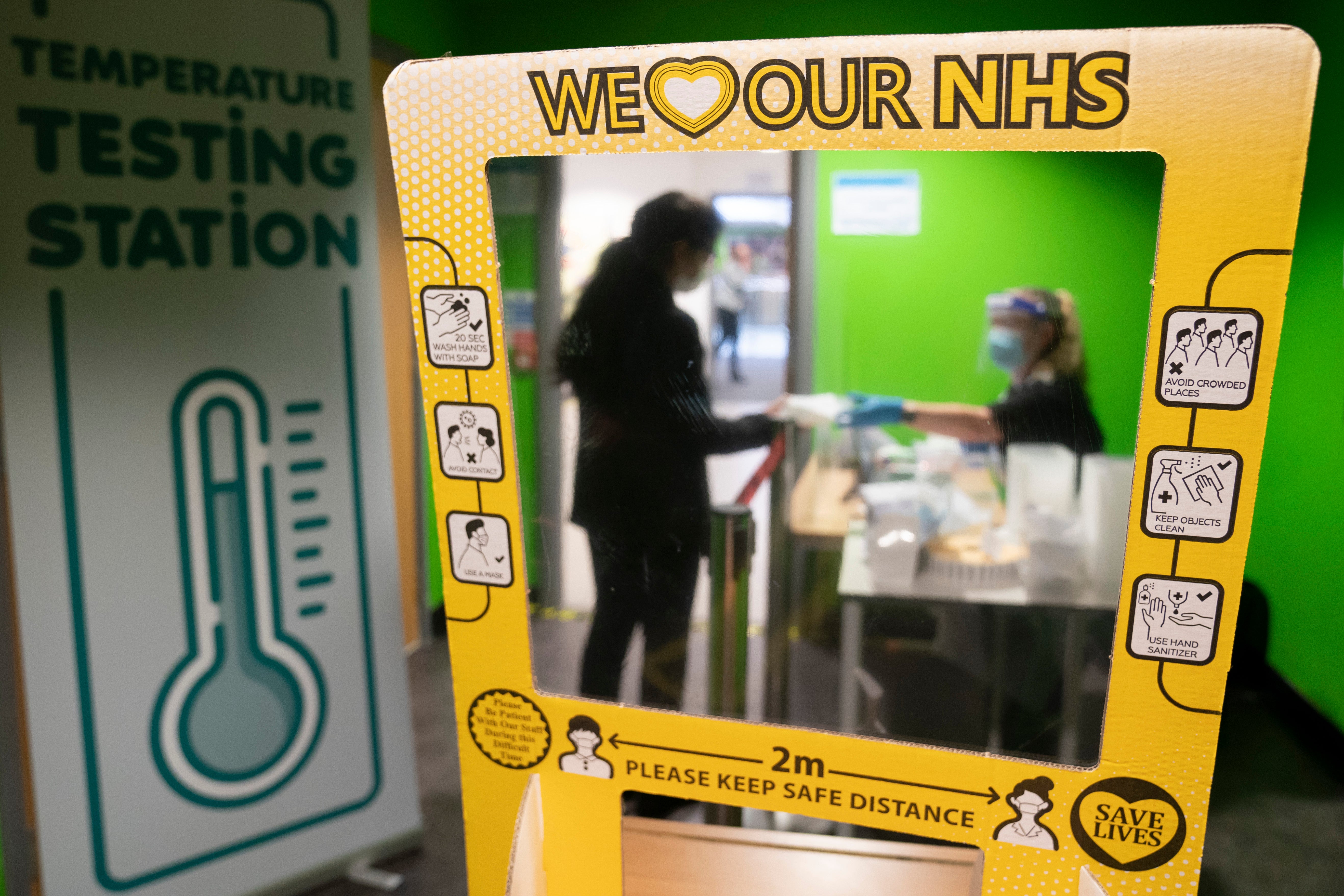England ends free virus tests under 'living with COVID' plan
The British government is ending the supply of free rapid coronavirus tests to most of the population

Your support helps us to tell the story
From reproductive rights to climate change to Big Tech, The Independent is on the ground when the story is developing. Whether it's investigating the financials of Elon Musk's pro-Trump PAC or producing our latest documentary, 'The A Word', which shines a light on the American women fighting for reproductive rights, we know how important it is to parse out the facts from the messaging.
At such a critical moment in US history, we need reporters on the ground. Your donation allows us to keep sending journalists to speak to both sides of the story.
The Independent is trusted by Americans across the entire political spectrum. And unlike many other quality news outlets, we choose not to lock Americans out of our reporting and analysis with paywalls. We believe quality journalism should be available to everyone, paid for by those who can afford it.
Your support makes all the difference.The British government is ending the supply of free rapid coronavirus tests to most of the population even though COVID-19 infections remain at record levels, and health officials warn the pandemic could still have nasty surprises in store.
More than 1.7 billion test kits have been handed out in workplaces, pharmacies and by mail over the past year, the government says, under a policy that encouraged people to test themselves regularly as a way to stamp out new outbreaks.
But starting Friday, most people in England will have to buy lateral flow tests from pharmacies or online suppliers.
Lateral flow tests use throat or nose swabs and give results in minutes, but are less accurate than the PCR swab tests used to officially confirm cases of COVID-19.
Tests will remain free for staff in high-risk settings such as hospitals, nursing homes, hospices and prisons, but under the government's “Living with COVID” plan most other people in England will now have to pay. Some free testing will continue for several weeks in Scotland, Wales and Northern Ireland.
Lawmaker Daisy Cooper, health spokeswoman for the opposition Liberal Democrats, said scrapping free tests would be another expense for people already coping with surging food and energy prices.
“It is a tax on caring for all those who want to do the right thing and get tested before visiting elderly or vulnerable relatives,” she said.
Critics also argue that the move comes at a dangerous time, with an estimated 1 in 16 people in England infected with the virus, according to the Office for National Statistics. There were 15,632 people in hospital in England with COVID-19 as of Wednesday, the highest number for more than three months.
The number of COVID-19 patients on ventilators remains low, however, and deaths are far below the peaks of previous waves in 2020 and 2021.
Britain has recorded more than 165,000 coronavirus deaths, the highest toll in Europe after Russia. The government lifted all remaining restrictions for England — including mask mandates, mandatory self-isolation for the infectious and testing for international travelers — earlier this year, even as omicron, the most transmissible variant yet, swept in.
Prime Minister Boris Johnson’s Conservative government is relying largely on vaccination and new treatments to keep the virus in check. Almost 92% of people age 12 and up in the U.K. have had two doses of a vaccine, and more than two-thirds have had a third, booster shot. Fourth doses are being given to the vulnerable and those aged 75 and over.
Jenny Harries, chief executive of the U.K. Health Security Agency, said the pandemic would “remain unpredictable to a large extent for the next, say, 18 months to two years.”
“We will have to be continuously alert to monitor those rates and to respond appropriately to any new variants,” she said. “But as with other respiratory viruses such as flu… at some point we have to come to terms with that.”